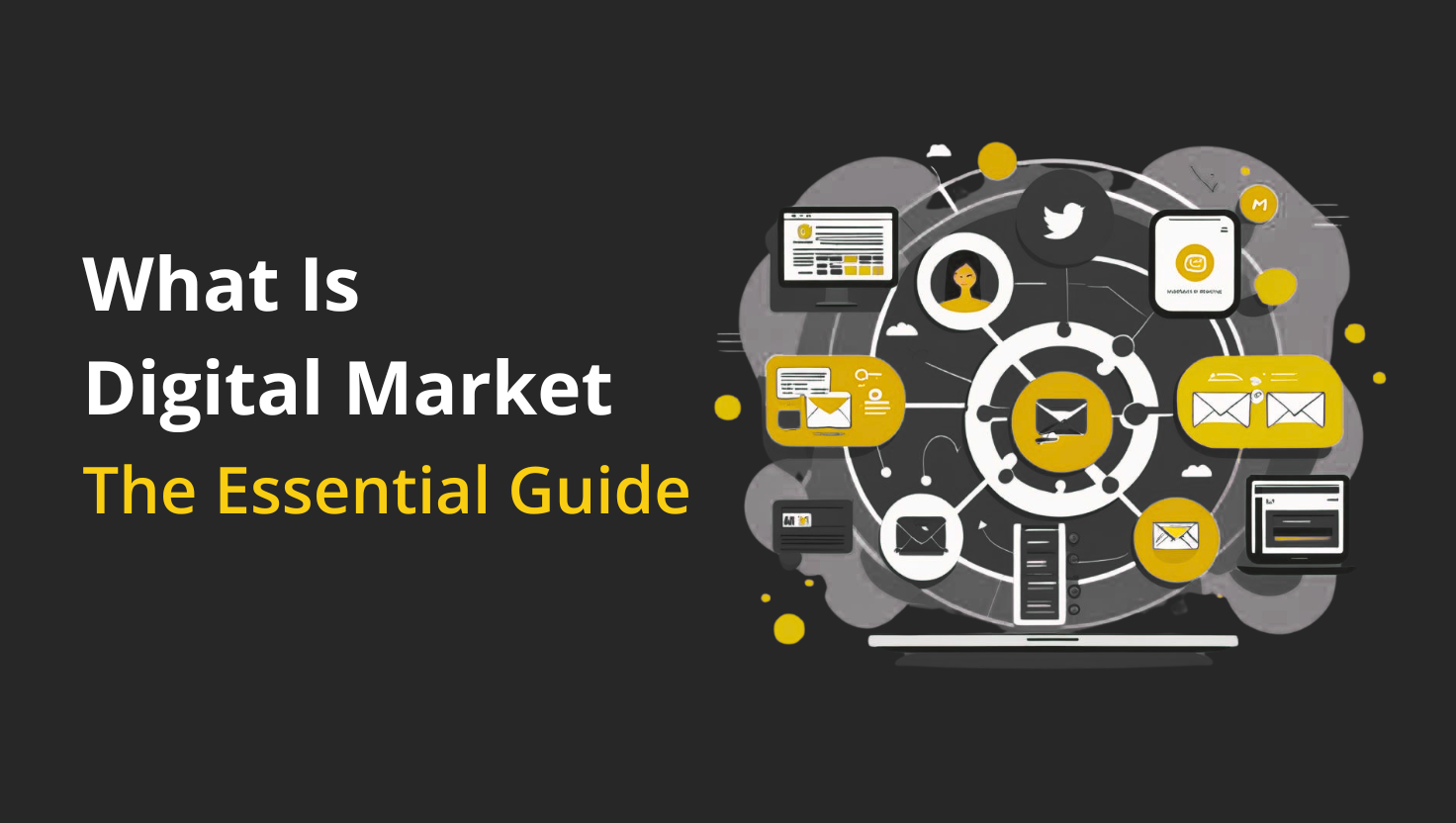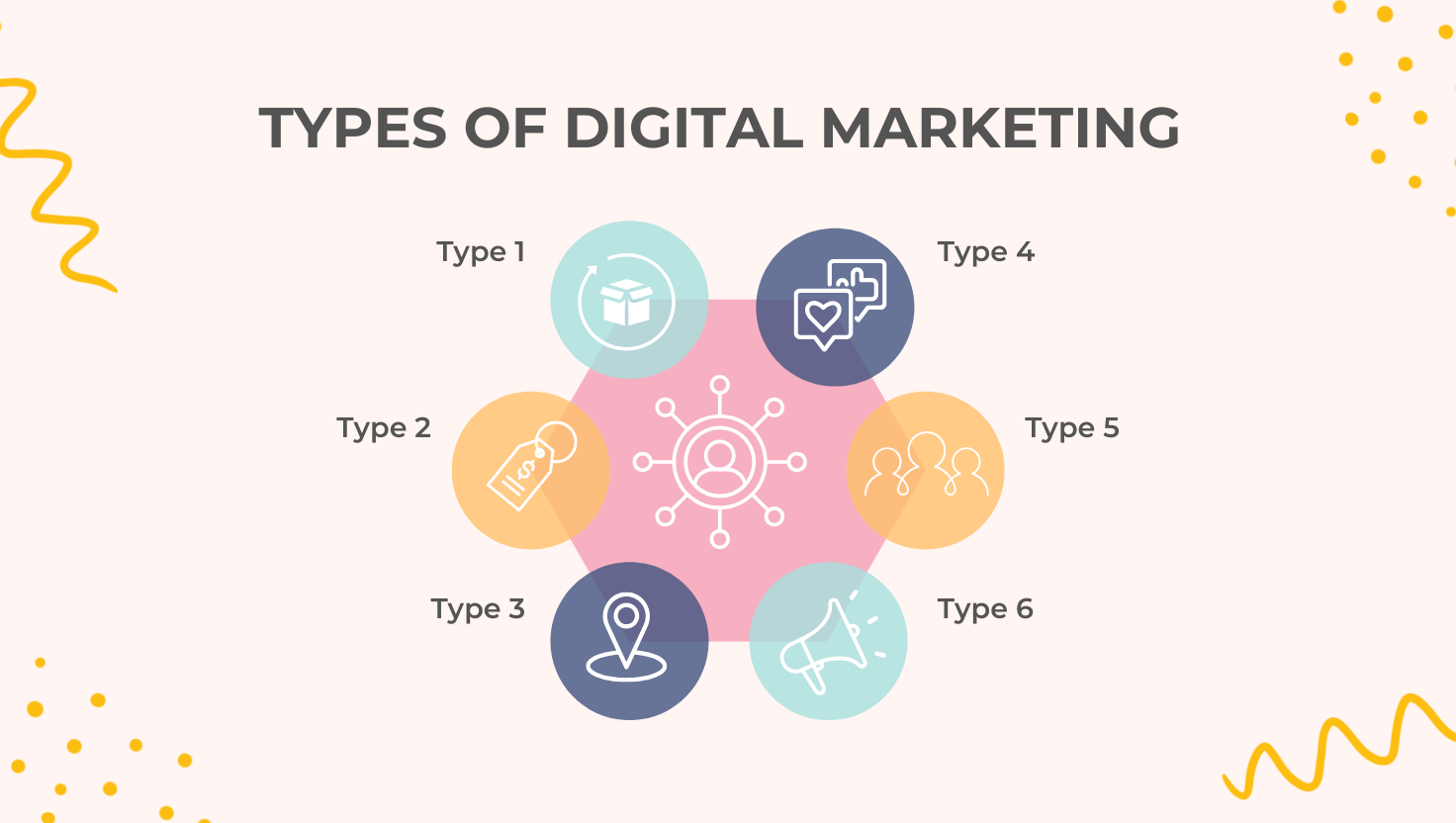

Digital marketing refers to the promotion of products or services using digital channels like websites, social media platforms, search engines, mobile apps, and email, which are all forms of digital media and forms of digital communication. Digital marketing is also called online marketing, and online marketing is a subset of digital marketing focused specifically on internet-based promotional activities. Digital marketing uses a variety of digital channels and tools, including both online and offline digital media, to enable businesses in Australia to reach their target audience with measurable results in real time.
In contrast to traditional marketing, digital marketing offers a more targeted, cost-effective, and interactive way to connect with potential customers. It's important to note that internet marketing is a subset of digital marketing that focuses on online channels such as social media, email, and search engines.
The concept of digital markets centres around offering a product or service via internet-connected platforms. These markets operate 24/7, enabling instant transactions, global reach, and personalised experiences. Businesses leverage digital marketing strategies to thrive in this environment. Digital marketing creates opportunities for business growth and customer engagement by enabling targeted promotion of a product or service, personalized messaging, and higher ROI compared to traditional advertising methods.
Digital marketing consists of various digital marketing tactics and marketing tactics, which are techniques and tools used to attract, engage, and convert customers online. These include:
Each digital marketing tactic serves a specific purpose in attracting and engaging customers, and the selection of marketing tactics depends on your goals, audience, and digital channels.

Each of the following represents a form of digital marketing:
Digital marketing takes place across various digital channels, including:
Analytics tools can track the number of people reached through each digital channel, providing valuable insights for optimizing marketing strategies.
These channels help brands create awareness, drive traffic, and convert leads into customers.
Social media plays a vital role in today’s digital marketing landscape. It allows for real-time interaction, high engagement, and effective brand awareness building. Social media also enables brands to engage directly with their target audiences, fostering stronger connections and improving campaign effectiveness.
Brands in Australia use social media marketing to:
Popular social media platforms used include Instagram, Facebook, LinkedIn, X (formerly Twitter), and TikTok.
SEO involves improving a website’s visibility on search engines by enhancing on-page SEO, technical structure, and content quality. It drives long-term, organic traffic without paid ads.
SEM includes pay-per-click (PPC) ads, like Google Ads, where you pay each time someone clicks on your ad. It's ideal for fast results and targeting specific demographics or search intent.
Both SEO and SEM are crucial for effective digital marketing in Australia.
Content creation is at the heart of any successful digital marketing strategy. By producing high-quality, relevant, and engaging content, businesses can connect with their target audience and build lasting brand awareness. Understanding your audience’s needs and interests is essential—this allows you to craft content that addresses their specific pain points and encourages interaction.
Digital marketing channels such as social media, blogs, and email marketing provide powerful platforms for sharing your content with a broad audience. Whether it’s informative blog posts, eye-catching social media updates, or personalized email newsletters, each piece of content should align with your overall marketing strategy and business goals.
Incorporating search engine optimization (SEO) techniques into your content ensures that it ranks higher on search engines, making it easier for potential customers to find your products or services. By consistently delivering valuable content across multiple marketing channels, businesses can drive more traffic, generate leads, and increase conversions—all while strengthening their online presence.
Promoting products and services in today’s digital landscape requires a strategic approach that leverages a variety of digital marketing channels. Social media platforms, email marketing, and pay per click (PPC) advertising are just a few of the tools businesses can use to reach their target audience and showcase their offerings.
A well-executed digital marketing campaign can boost brand awareness, drive website traffic, and generate valuable leads. Marketing automation tools make it possible to personalize marketing efforts, ensuring that the right message reaches the right audience at the right time. This not only enhances the customer experience but also increases the likelihood of making a purchase.
Affiliate marketing and influencer marketing are also effective tactics for expanding your reach. By partnering with affiliates or influencers who have established trust with their followers, businesses can promote their products or services to new audiences and build credibility. Whether you use social media, email marketing, or per click PPC advertising, integrating these strategies into your marketing campaign can help you achieve your business goals and stand out in a crowded marketplace.
Tracking and measuring the success of your digital marketing efforts is essential for continuous improvement. By setting clear key performance indicators (KPIs) such as website traffic, engagement rates, conversion rates, and return on investment (ROI), businesses can evaluate the effectiveness of their digital marketing campaigns and strategies.
Analytics tools provide valuable insights into how your audience interacts with your content across various digital marketing channels, including social media, email marketing, and search engine marketing (SEM). These insights allow you to make data-driven decisions, refine your marketing strategies, and optimize your marketing campaigns for better results.
A strong digital marketing strategy incorporates regular monitoring of KPIs and analytics to identify what’s working and where there’s room for improvement. By leveraging data from multiple marketing channels, businesses can enhance their digital marketing efforts, maximize ROI, and achieve long-term growth in an ever-evolving digital landscape.
Aspect
Digital Marketing
Traditional Marketing
Cost
Lower, scalable
Higher, fixed
Targeting
Highly targeted
Broad and general
Measurability
Instant KPIs and analytics
Delayed, often unclear
Engagement
Interactive (likes, shares, etc.)
One-way communication
Reach
Global
Limited by geography
Digital marketing allows businesses to track every dollar spent and measure success instantly. Effective digital marketing strategies, such as an email marketing campaign, provide measurable results and instant feedback, making it easier to optimize campaigns for better performance.
To build an effective digital marketing strategy, follow these steps:
Make sure each campaign is optimized for best results.
Both benefit from a data-driven, content-rich strategy.
Absolutely. Digital marketing is a growing career field in Australia, with increasing demand across industries.
A digital marketer plans, executes, and manages online campaigns to promote products or services. Key responsibilities include:
It varies but commonly includes campaign planning, content creation, performance tracking, SEO/PPC management, and strategy execution.
Salaries range widely depending on experience:
Freelancers and consultants can earn more depending on niche and results delivered.
While not inherently difficult, it requires a blend of creative, analytical, and technical skills. Understanding best practices, staying updated with trends, and mastering tools like Google Ads, Meta Business Suite, and email CRMs are essential.
Digital marketing in Australia is no longer optional—it’s essential. Whether you’re a business owner looking to scale or an individual pursuing a career in this space, understanding the types of digital marketing, the available digital channels, and how to create effective digital marketing campaigns is key to long-term success.
From building brand awareness to driving conversions, digital marketing continues to evolve—and staying ahead means learning, testing, and adapting constantly.
Q: What are the 4 types of digital marketing?
A: SEO, SEM, content marketing, and social media marketing.
Q: What are the 7 pieces of digital marketing?
A: SEO, SEM, content, social media, email, influencer, and affiliate marketing.
Q: What is the digital marketplace?
A: An online platform where goods and services are sold through digital means.
Q: What are the best digital marketing techniques?
A: Targeted SEO, compelling content, data-driven PPC ads, and consistent social media engagement.
Q: Is digital marketing a good career in Australia?
A: Yes, it’s a fast-growing industry with strong demand, flexibility, and competitive salaries.


